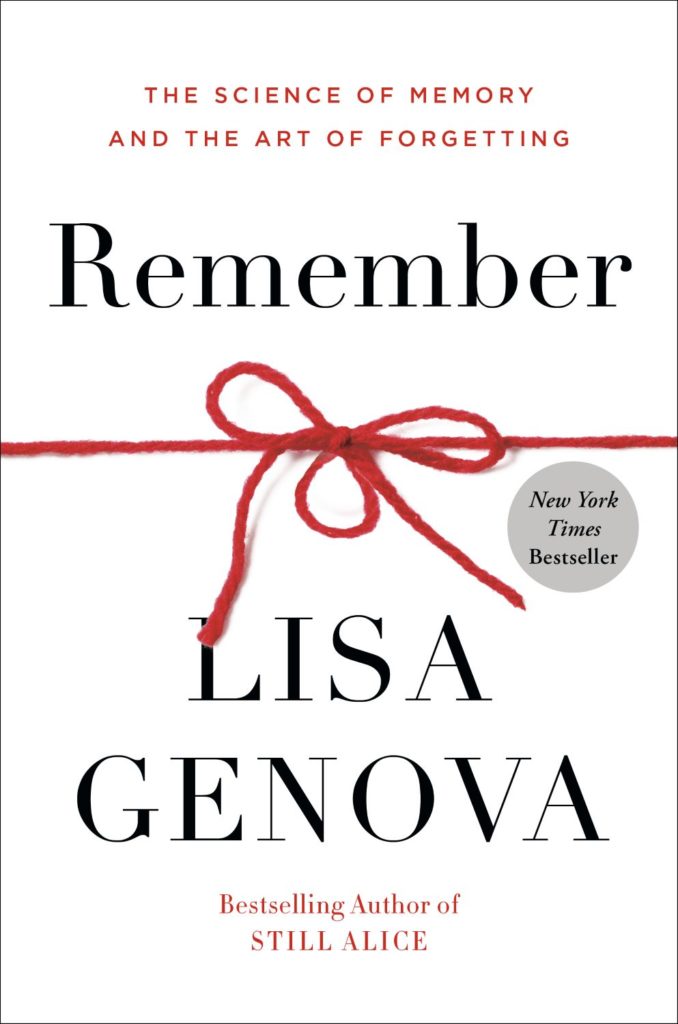Neuroscientist, Lisa Genova’s newest book, Remember, The Science of Memory and the Art of Forgetting gives us peace-of-mind when we forget a person’s name and helps us better understand how to improve our memory.

Genova, author of the book, Still Alice, that was made into a movie, explains warm-heartedly and with humor that our brains don’t always work the way we expect them to. For example, our brains are weakest at remembering to remember.
What do we need to remember? To bring the bottle of wine we purchased for the Friday-night party. To take our medication.
Our prospective memories fail. When something is out of sight, it’s out of mind. She cites two surprising examples of cellists, including Yo Yo Ma, who forgot their multi-million-dollar cellos in taxis. “Remembering to retrieve your priceless cello from the trunk of a cab… is kind of a big deal,” Genova adds.
She encourages us to use external aids like to-do lists, calendars, and more to aid our memories. These do not weaken our memory muscles. She draws an analogy with wearing glasses when we want to see more clearly.
There are different kinds of memories, including short-term working memory, semantic (words and information); muscle (golf swing, playing a piano piece); and episodic (significant memorable event).
Genova draws distinctions between normal aging and Alzheimer’s. While our processing time slows as we grow older, we remember just as well as when we were younger. Meanwhile, Alzheimer’s destroys the neurons we need to remember. She begins the Alzheimer’s chapter with an example of memory failure from her friend. “Two weeks ago, I work up next to my wife of thirty-four years, and it took me ten minutes to figure out who she was.”
She advises that the best prevention of Alzheimer’s, beyond diet and aerobic exercise, is getting enough sleep. Seven to nine hours allows our glial cells to clean enough of the waste matter from our neurons to reduce accumulation of amyloid, which contributes to Alzheimer’s.
When it comes to remembering names, Genova writes of the Baker/baker paradox. We remember a person’s occupation, such as a baker, more easily because we can associate more life experiences to bakers, bakeries, and fresh-baked bread. Whereas, she adds Baker, the “name is an abstract concept, a neurological cul-de-sac.”








